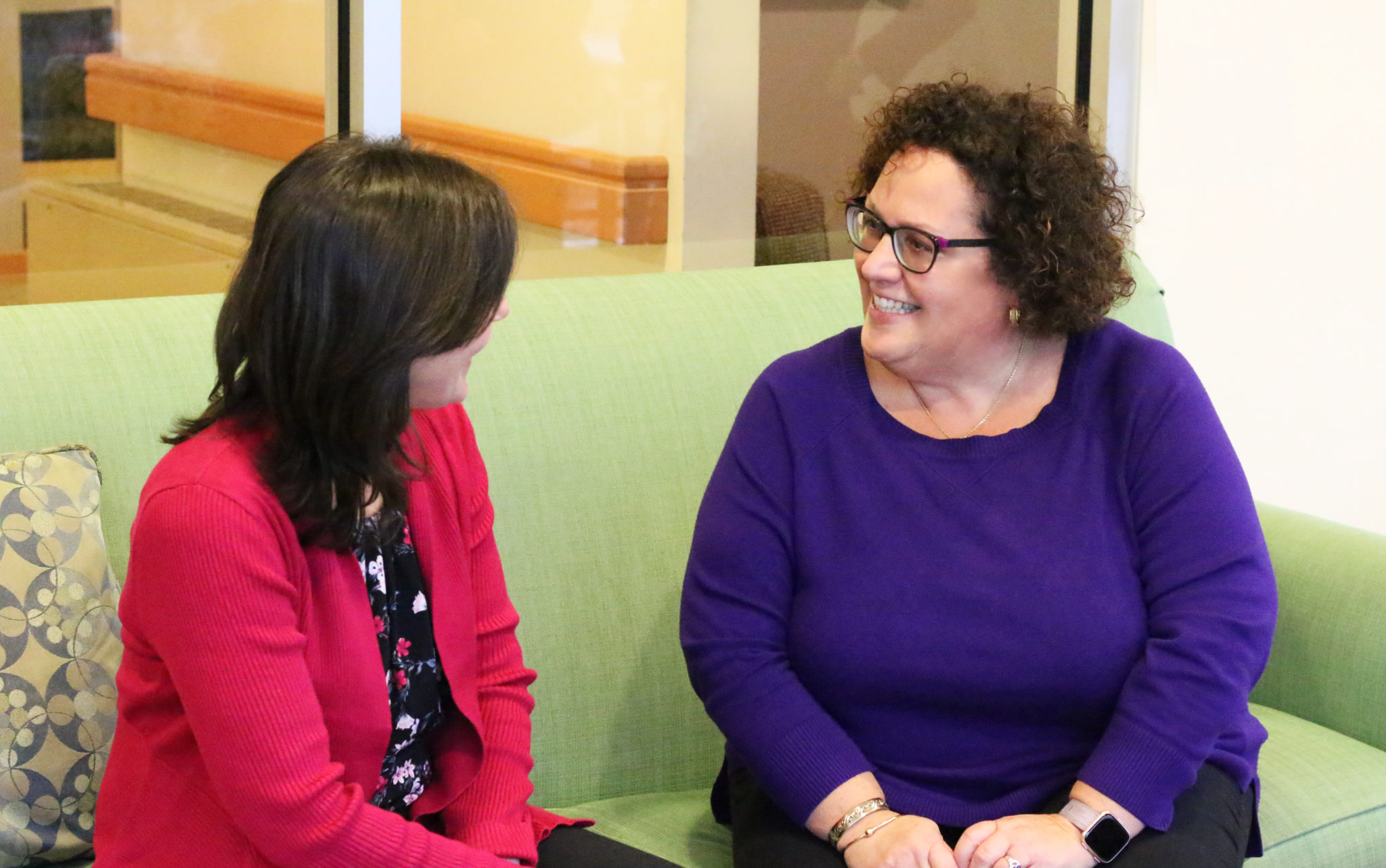To celebrate Nurse Practitioner’s Week, HopeHealth asked our own nurse practitioner, Amy Sharron, MS, APRN-BC, GNP-BC, ACHPN, to guest write this post.
I love my job. Really, I jump up every morning eager to go to work. Some days are harder than others, but I’ve been blessed to help patients through really difficult times.
As a palliative care nurse practitioner, I provide inpatient and outpatient care to people facing a serious or chronic illness. One part of my job is managing a patient’s stress and symptoms. The other part is helping patients understand their illness so they can make informed decisions about the treatment they would like to receive.
Palliative care can continue for months or even years, so I really get to know my patients. This is the story of one of my patients that captures what makes my job special.
We had a good chuckle, but I was so touched by the experience. Joan knew me. She trusted me. And she was letting me know she was okay, for now.
I cared for Joan* for three years as she battled several types of cancers. She was in her 70’s and was so tough. Joan just kept fighting and fighting through hospitalizations and countless outpatient visits.
If you’ve cared for a loved one with a complex illness, you know what an ordeal it can be. Sometimes you don’t know what to expect or prepare for.
I got to know Joan’s husband and two sons very well. Every time she got sick, we’d think, “This is it, this is her time,” but she kept coming back. We all agreed it was like she had 20 lives.
Joan suffered a cardiac arrest and was hospitalized yet again. After several days in intensive care, her ventilator was removed, but she was only semi-conscious and her health was very fragile.
Like so many times before, it was time for a family meeting. I met with Joan’s husband and sons and the attending physicians at her bedside to discuss whether life-sustaining measures should be continued.
We were deep in conversation when Joan suddenly turned over in bed and locked her eyes on my face. She stared at me intensely and said, “Amy, what the heck did you do to your hair?”
Everyone in the room doubled over with laughter. One of the physicians said, “Joan, thank you for asking that because we’ve been wanting to know for months!”
Well, I’ll tell you. I tried a new hairstyle that didn’t work out. Leave it to Joan to blurt out the honest truth.
I said, “I guess we don’t have to continue this conversation because Joan is back and perfectly fine!”
We had a good chuckle, but I was so touched by the experience. Joan knew me. She trusted me. And she was letting me know she was okay, for now.
Trust is the foundation for two-way communication, which is central to palliative care. Patients and families are under stress and feel bombarded by information. They count on us to explain in simple terms what other doctors are saying. Meanwhile, we must listen respectfully to their questions and concerns.
Even though I’ve been practicing medicine for decades, I’m always learning how to be a better listener. I used to teach a class for clinicians about communicating with patients, and I found that the participants often taught me, too. I carry forward the lessons I learned from those classes, adding them to my treasure chest of knowledge to draw upon when I need them.
Practicing medicine is a constant evolution because no two patients are alike. It’s our job as palliative caregivers to ask the right questions. Patients usually tell us what they need, we just have to hear it.
And when they tell us what they think (like about our hair)—well, that’s a blessing, too!
Amy Sharron, MS, APRN-BC, GNP-BC, ACHPN, is a palliative care consultant for HopeHealth. She provides inpatient and outpatient care at South County Hospital in Wakefield, RI.
*Name changed to protect patient’s privacy
Questions about palliative care? Contact us today at (844) 671-4673 or Information@HopeHealthCo.org.

